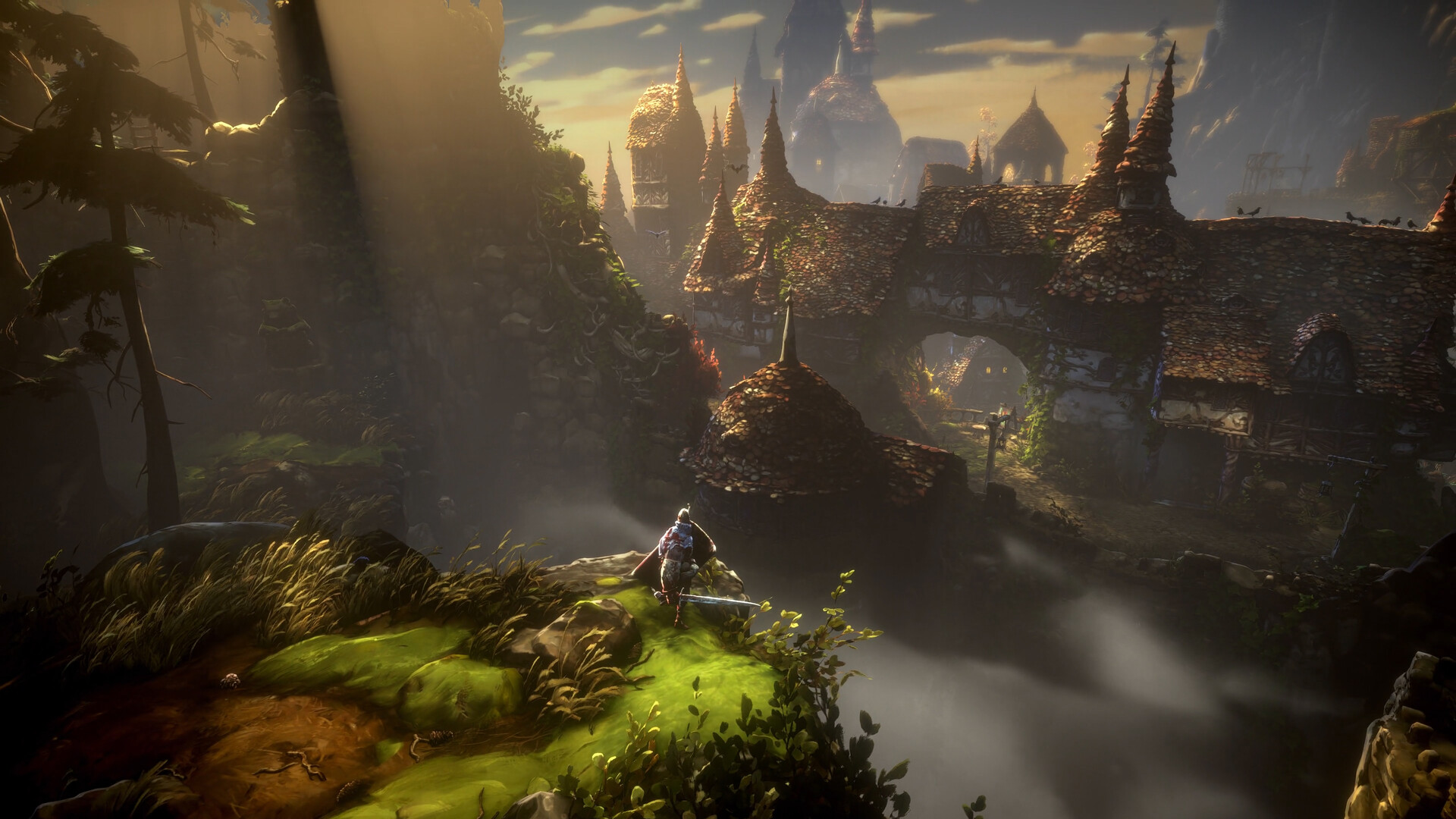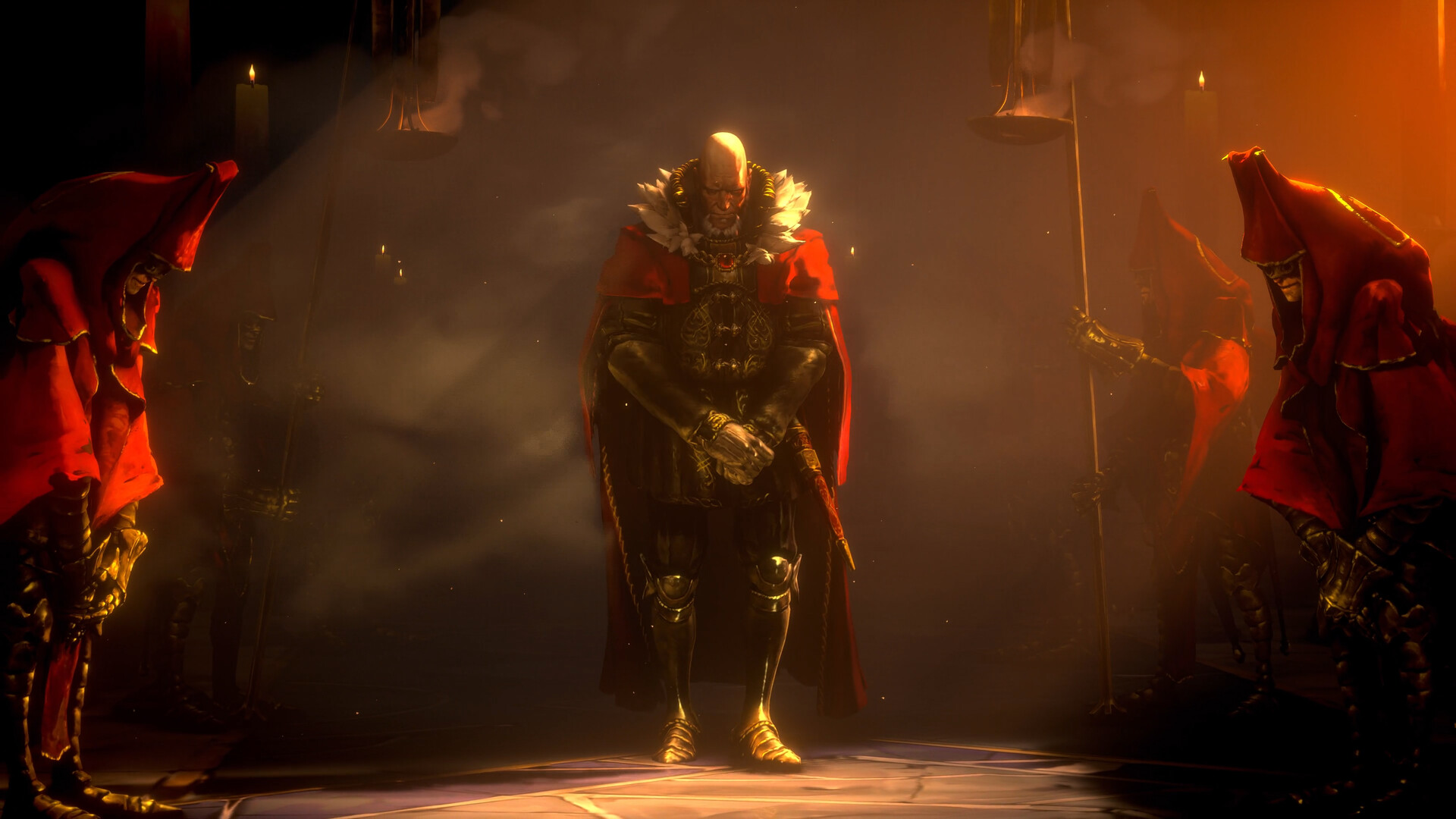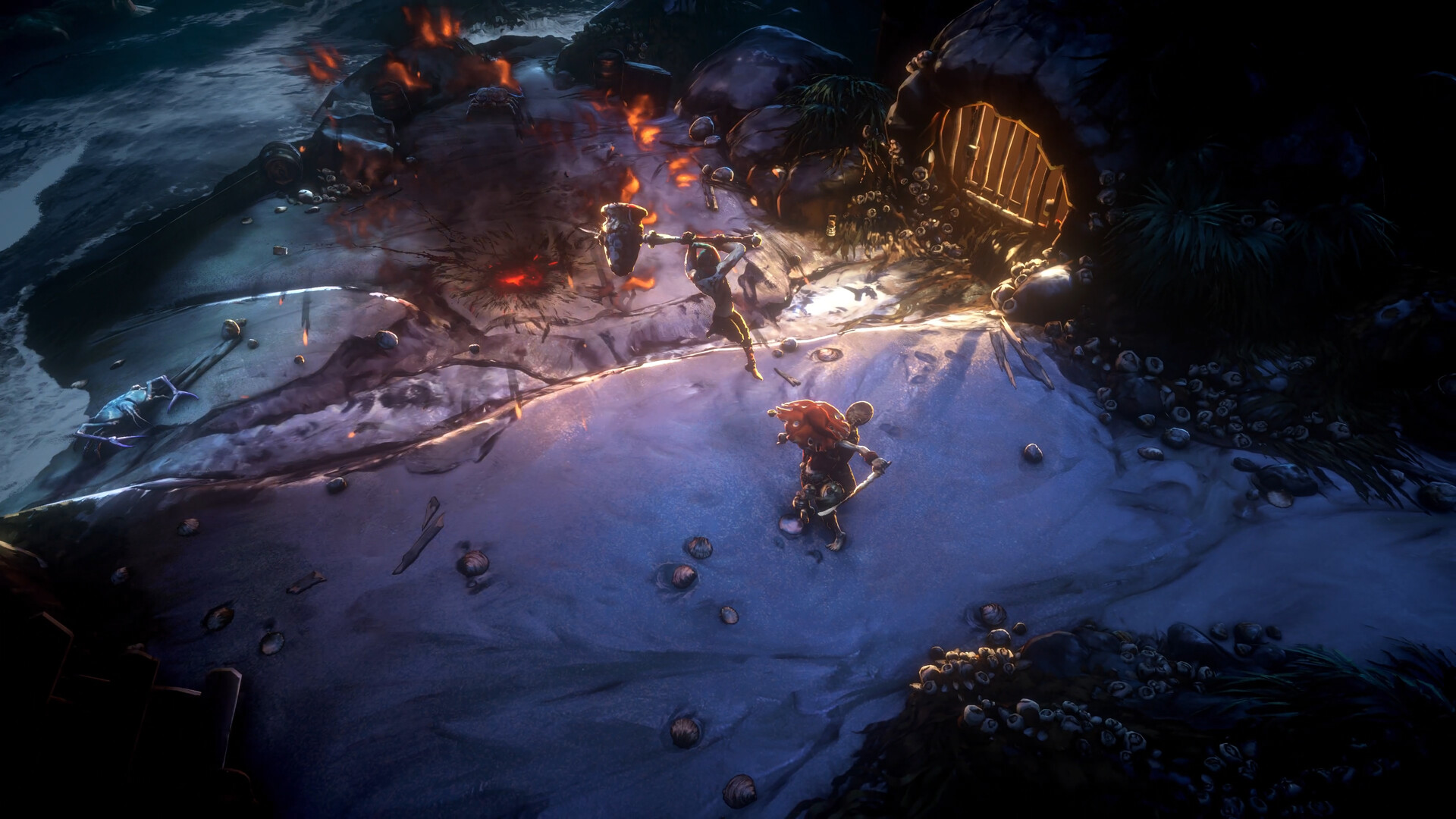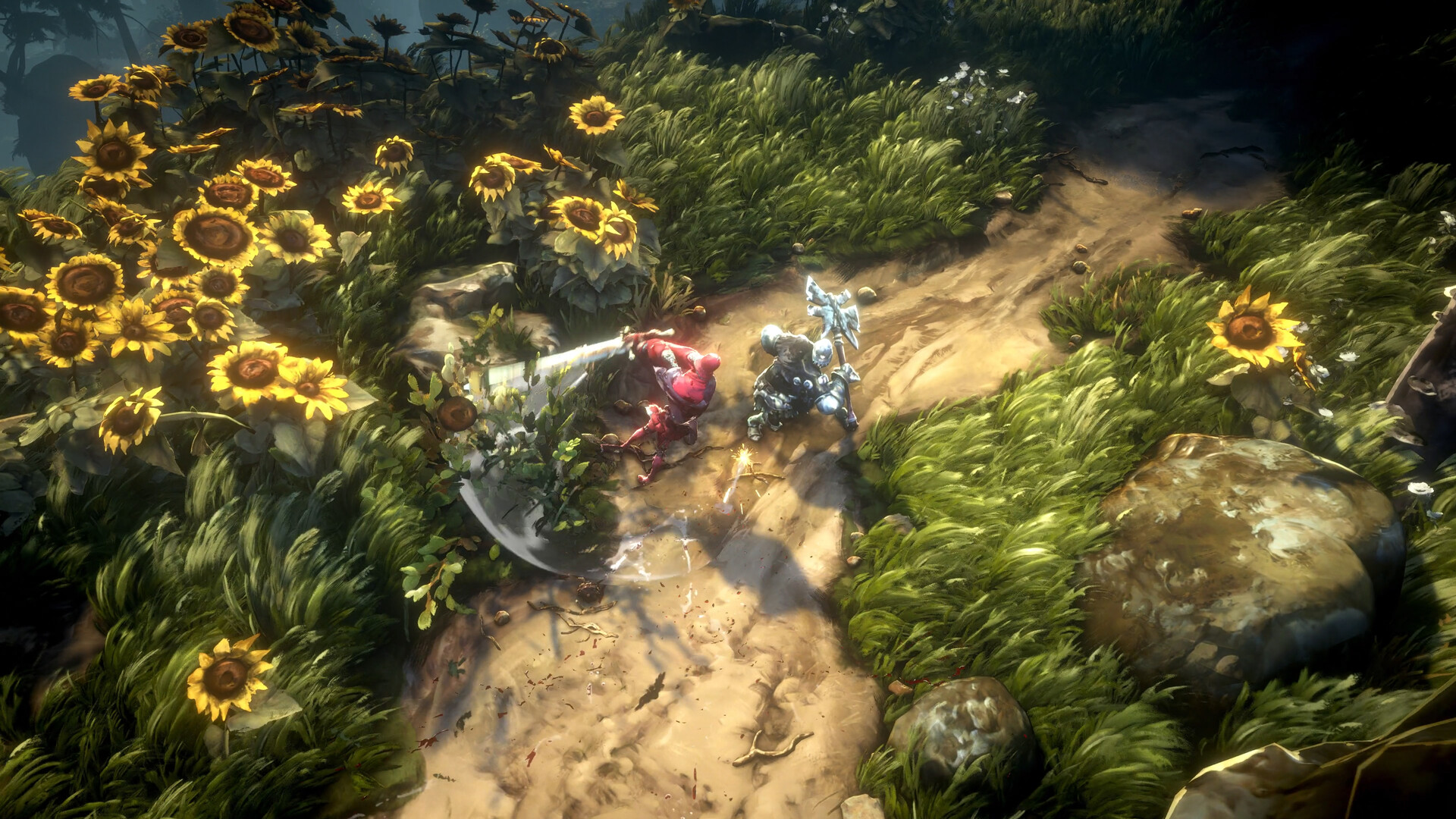I never once thought of Dark Souls or Diablo when playing Moon Studios' previous games, but the dev's new action RPG feels like the perfect evolution of ideas and talent
Preview | Hands-on with No Rest for the Wicked, a game that wants to reinvent the ARPG genre

Mesmerizing. If I had to sum up Moon Studios' first game with just one word, that would be it. Ori and the Blind Forest was a wonderful undertaking back in 2015, as a drop dead gorgeous 2D Metroidvania game that was as smart as it was stylish. As far as debut projects go, Moon Studios set its sights high, and, backed by Microsoft, lived up to its name with something that was out of this world. Its 2020 sequel, Ori and the Will of the Wisps, improved on the original formula in just about every way – so much so that I'd have happily taken another Ori-styled offering as the creator's third multiplatform venture.
Instead, we have No Rest For the Wicked. And, my goodness, am I glad Moon Studios has pushed itself even further, spreading its tendrils deep into the Soulslike action RPG space.
Just right


The thing is: in my mind it shouldn't work as well as it does. The Metroidvania and action RPG spaces are often underpinned by challenging combat and/or traversal, but I never once thought of games like Dark Souls, Bloodborne or Nioh when clambering around Ori's eye-watering worlds simply because they felt like a million miles apart. With the process in reverse, though, one of No Rest For the Wicked's most endearing features is the fact that it's managed to maintain the majesty that set Ori and the Blind Forest apart from its peers nearly a decade ago, while taking meticulous notes from the very best ARPGs that have landed in the intervening period. Diablo and Dark Souls are the two I'm reminded of most – and I suspect many of you will feel the same – but there are flashes of everything from Elden Ring to Nier: Automata, Baldur's Gate 3, and even The Legend of Zelda: Breath of the Wild and Tears of the Kingdom here too.
In the 90-minute-long, in-development No Rest for the Wicked demo I got to play through, I was given a taste of how things will unfold in the game's fictitious "world of death" set in the year 841. Story-wise, I learned that the long-serving King Harol has died and that his arrogant, bit-of-a-dick son Magnus has taken over the throne – just as an unholy plague named the Pestilence has taken grip of the game's Isola Sacra setting. Filling the shoes of a Cerim, a holy warrior of sorts who possesses the power to overcome and cleanse the Pestilence from the land, I battled my way across Isola Sacra in the shadow of political unrest.
In practice, this saw me getting to grips with the game's ultra-precise real-time combat, where every blow, dodge and roll requires deft timing, a splash of luck, and a lot of patience. One of my favorite things about my favorite action role-players is how they challenge my resolve. The best games in this space will hurt you time and again, but will never do so unfairly, making every combat decision feel like it counts; and that if (or, rather, when) you fail, it's because you did something wrong, not because the game is punishing you. No Rest for the Wicked understands this very well, and as such fighting is a total joy – so too is learning patience in both victory and defeat.

"This is an abstract comparison, but No Rest for the Wicked feels like when comedy actors sidestep into prestige drama."
I was only able to scrape the surface of its systems, but patience in No Rest for the Wicked is learned in part by judging the speed and weight of your weapons, understanding how different moves land better from different starting positions, and knowing when to advance and when to retreat. Anyone familiar with FromSoftware's back catalog or the dark fantasy sprawl of Sanctuary will already know exactly what I'm talking about here, but No Rest for the Wicked ramps up its tense encounters with some truly hair-raising audio, where every clunk of a sword, exploding molotov, and lifeless body hitting the dirt feels tangible.
A genre-familiar array of runes, armor and weapons let you build out your character – whose name, appearance and gender can be sculpted via a pretty thorough post-menu screen creation suite – with uber-aggressive and larger than life bosses gating each new explorable zone in turn (Warrick the Torn: you are a bastard), and whimsical NPCs on-hand to offer snippets of lore and sell you items and wares.
Sign up to the GamesRadar+ Newsletter
Weekly digests, tales from the communities you love, and more
Through all of this, again, No Rest for the Wicked looks fantastic, boasting a painterly art style that set tongues wagging following its reveal at last year's Game Awards, and, combined with its ear-piercing audio, consistently left me scraping my jaw off the floor during my short hands-on time. With the promise of online multiplayer – where up to three friends can join in your campaign's online co-op mode – a sophisticated leveling system, and a hub-like town named Sacrament that's filled with mini-games and side activities, such as fishing and farming, No Rest of the Wicked is ambitious and impressive in equal measure.
With all of this, No Rest for the Wicked is as mesmerizing as its studio forerunners, but with a distinctly darker vibe. This is an abstract comparison, but No Rest for the Wicked feels like when comedy actors sidestep into prestige drama. As much as you loved Hal's hijinks in Malcolm in the Middle, for example, there's no denying Brian Cranston's quintessential performance as Walter White in Breaking Bad. One couldn't exist without the other, of course, and that's the beauty of No Rest for the Wicked and Moon Studios – the latter's path, hard work and learned experience has led them to the former. Whether or not it can "reinvent the genre", as noted on the No Rest for the Wicked Steam page remains to be seen. But I've thoroughly enjoyed what I've seen so far – and now I cannot wait to see more in due course.
No Rest for the Wicked is due to launch in Early Access on April 18 on PC (Steam).
Big fan of narrative-heavy games? Check out the best RPGs saving the world right now

Joe Donnelly is a sports editor from Glasgow and former features editor at GamesRadar+. A mental health advocate, Joe has written about video games and mental health for The Guardian, New Statesman, VICE, PC Gamer and many more, and believes the interactive nature of video games makes them uniquely placed to educate and inform. His book Checkpoint considers the complex intersections of video games and mental health, and was shortlisted for Scotland's National Book of the Year for non-fiction in 2021. As familiar with the streets of Los Santos as he is the west of Scotland, Joe can often be found living his best and worst lives in GTA Online and its PC role-playing scene.


